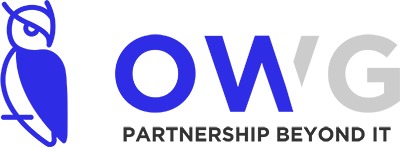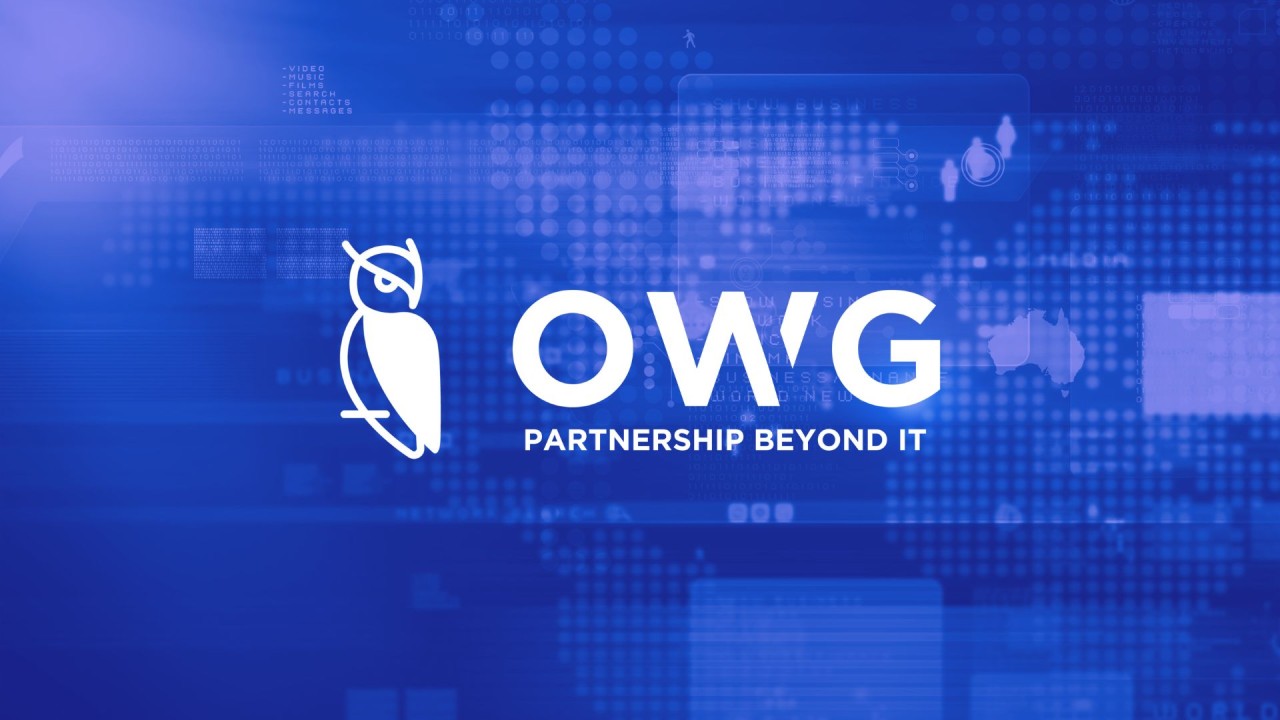October 2024
As businesses continue to adopt remote work as a permanent part of their operations, providing secure and efficient remote access has become a top priority. However, remote access presents its own set of challenges, particularly when it comes to security, compliance, and employee productivity.
Here are the top six challenges of remote access and how your business can overcome them.
1. Security Vulnerabilities
One of the biggest concerns with remote access is the increased risk of security breaches. Employees accessing company networks from home or public Wi-Fi are more susceptible to cyberattacks, particularly if they are not using secure connections. To mitigate these risks, businesses should implement secure VPNs (Virtual Private Networks) that encrypt data and provide a secure connection between remote employees and the company network. Multi-factor authentication (MFA) can also add an extra layer of protection, ensuring that only authorized users can access sensitive information.
2. Inconsistent Access to Resources
Remote workers need consistent access to company resources, including files, applications, and collaboration tools. However, slow internet connections or unreliable VPN services can cause disruptions, leading to frustration and lost productivity. To address this, businesses should invest in cloud-based solutions that allow employees to access data and applications from anywhere, without the need for constant VPN connections. Cloud platforms also offer greater scalability, allowing businesses to accommodate an increasing number of remote users.
3. Compliance and Data Privacy
Ensuring compliance with industry regulations, such as GDPR or HIPAA, is more challenging when employees are working remotely. Data privacy becomes a significant concern, especially if employees are using personal devices or unsecured networks to access company information. To address these issues, businesses must implement strict security policies for remote workers, including the use of company-approved devices, encrypted data transmission, and compliance monitoring tools. Regular audits and security training can also help employees understand the importance of maintaining compliance in a remote environment.
4. Device Management
Managing a fleet of devices used by remote employees is another challenge. Employees may use a mix of personal and company devices, making it difficult for IT teams to monitor security and ensure that all devices are compliant with corporate standards. Implementing Mobile Device Management (MDM) or Endpoint Management solutions can help businesses track, manage, and secure devices accessing company data. These tools allow IT teams to remotely wipe lost or stolen devices, install security patches, and enforce security policies across all devices used for work.
5. Collaboration and Communication
Remote work can sometimes hinder effective communication and collaboration among employees. While email and instant messaging are common solutions, they can create silos and make it difficult for teams to work together efficiently. Investing in comprehensive collaboration tools, such as Microsoft Teams or Slack, can help bridge this gap. These platforms offer real-time messaging, video conferencing, file sharing, and project management features that enable remote teams to collaborate seamlessly, no matter where they are located.
6. IT Support for Remote Workers
Providing IT support to remote employees can be more challenging than supporting in-office staff. Remote workers may face connectivity issues, software malfunctions, or hardware problems that can be difficult to troubleshoot without hands-on assistance. To overcome this, businesses should offer remote IT support solutions, such as help desks with remote access capabilities. Additionally, implementing self-help tools and resources can empower employees to resolve common issues on their own, reducing the burden on IT teams and minimizing downtime.
Remote access is a powerful tool for businesses, enabling flexibility, productivity, and employee satisfaction. However, it also comes with challenges that must be addressed to ensure secure, compliant, and efficient operations. By investing in secure VPNs, cloud-based solutions, collaboration tools, and device management platforms, businesses can overcome these challenges and create a seamless remote work environment that benefits both employees and the organization as a whole.
AI tools, from virtual assistants to chatbots and productivity applications, have become integral to how businesses operate. These tools offer convenience, speed, and automation that can enhance customer service and operational efficiency. However, as we rely more on AI, it raises an important question: How safe is the information we input into these systems?
1. Data Retention and Privacy Concerns
Many AI platforms retain user data to improve the accuracy and performance of their algorithms. When you input information into an AI system—whether it’s customer details, financial data, or personal messages—that data may be stored on the platform’s servers for future reference. While this can enhance the AI’s capabilities, it also introduces risks related to data privacy and security.
In industries like healthcare, finance, and legal services, where confidential information is regularly handled, this can become a significant concern. Businesses need to be cautious about the types of data they input into AI platforms and must ensure that these systems are secure enough to handle sensitive information.
2. Risk of Data Misuse
Another issue is the potential misuse of data. If the AI platform is not sufficiently secure, sensitive information entered into the system could be accessed by unauthorized individuals. Hackers target AI systems because they store large amounts of valuable data. If a security breach occurs, confidential business information, customer data, and intellectual property could be compromised, leading to legal and financial consequences.
3. AI Compliance Challenges
Many industries have strict regulations about how data should be stored, accessed, and shared. For example, companies dealing with health information must comply with HIPAA, while businesses in the European Union need to adhere to GDPR. Using AI systems that are not compliant with these regulations can result in significant fines and penalties.
When adopting AI tools, it’s essential to ensure that they comply with relevant industry standards. Look for platforms that offer compliance features or work with providers who understand the regulatory landscape. This will help protect your business from the legal risks associated with improper data handling.
4. How to Protect Your Data in AI Systems
- Choose Secure Platforms: Always use AI platforms that offer strong data protection features, such as encryption and secure data storage.
- Limit Sensitive Data: Avoid entering highly sensitive information into AI systems unless absolutely necessary. If you must, ensure the platform is compliant with the relevant data privacy regulations.
- Understand Data Retention Policies: Be aware of how long AI platforms retain your data and how they handle it after it is no longer needed. Choose platforms that offer clear data retention and deletion policies.
AI tools offer a wealth of convenience, but businesses need to be mindful of the potential risks associated with data security and privacy. By carefully selecting AI platforms with robust security measures and ensuring compliance with industry regulations, you can safely integrate AI into your operations without compromising sensitive information.
In today’s fast-paced legal environment, staying competitive means more than just offering expert legal counsel. The right technology infrastructure can be a crucial factor in a law firm’s success, affecting everything from client communication to case management and data security. As law firms increasingly rely on digital tools and cloud-based platforms, having the right IT partner is no longer a luxury—it’s a necessity.
But what does it mean to have the “right” IT partner for your law firm? Below, we explore the key ways in which an expert IT partner can contribute to your firm’s overall success.
1. Security and Compliance You Can Trust
Legal firms handle highly sensitive and confidential client data daily. Ensuring that this data is secure from cyber threats and in compliance with legal industry regulations such as GDPR, HIPAA, and SOC is critical.
The right IT partner will implement robust security measures like multi-factor authentication (MFA), encryption of data both at rest and in transit, and AI-driven threat detection to guard against data breaches. They’ll also work with your compliance team to ensure that your firm’s IT infrastructure meets all necessary regulatory requirements.
Additionally, they’ll provide air-gapped backups to protect against ransomware attacks and other disasters. This ensures that, even in the worst-case scenario, your firm will still have access to its critical information.
2. Maximizing Efficiency with Tailored Solutions
Law firms often face unique challenges that require customized IT solutions. Off-the-shelf products may not fit your firm’s specific needs, and a cookie-cutter approach can limit your efficiency. A good IT partner understands this and will provide solutions that are tailored specifically to your firm.
For instance, a cloud desktop platform (CDP) like Parallax Private Cloud Desktop is designed to offer a personalized environment that supports your existing legal applications, databases, and case management systems. With the right IT partner, this setup can be easily scaled as your firm grows and your needs evolve, allowing you to expand your resources without costly infrastructure upgrades.
3. Streamlining Remote Work
The modern law firm isn’t confined to a single physical location. Lawyers and staff often need the flexibility to work from multiple locations, whether in the courtroom, at home, or from a client’s office.
The right IT partner will make this possible with secure, cloud-based access to your firm’s applications and data from any device, at any time. With a robust cloud platform, your firm’s entire team can operate as efficiently as they would in the office, no matter where they are. This level of flexibility can directly contribute to your firm’s productivity and client satisfaction, making it a crucial part of your success.
4. Cost Control and Scalability
Investing in an IT infrastructure that is both secure and efficient can be costly, especially when relying on physical servers, traditional storage solutions, and on-site hardware. By partnering with an IT provider that offers cloud-based solutions, your firm can significantly reduce overhead costs associated with maintaining and upgrading in-house systems.
The right IT partner will provide a scalable solution that grows with your business, allowing you to add or remove resources as needed. Cloud platforms like Parallax Private Cloud Desktop allow your firm to pay only for what you use, keeping costs predictable and under control while ensuring that your IT infrastructure supports your evolving needs.
5. 24/7 IT Support & Proactive Maintenance
In the legal industry, downtime is not an option. Even minor IT issues can lead to delays that negatively impact case outcomes and client relationships. The right IT partner offers proactive maintenance and 24/7 support, ensuring that your systems run smoothly, and any issues are quickly addressed.
This constant monitoring and support mean your firm can focus on what you do best—serving your clients—without worrying about IT interruptions or unexpected downtime.
6. Supporting Data-Driven Decisions
As the legal landscape becomes more competitive, law firms are increasingly relying on data to drive their decisions, whether it’s for case management, client communication, or marketing strategies. The right IT partner can provide the tools and technology needed to collect, analyze, and manage data effectively, helping your firm make informed decisions that improve outcomes.
From business intelligence tools to client relationship management (CRM) systems, your IT partner should offer you the technological foundation to leverage data in ways that drive growth and efficiency.
7. Future-Proofing Your Firm
Technology continues to evolve, and the legal industry is no exception. New software, cloud platforms, and security threats emerge every day. Having the right IT partner means having a team that stays ahead of these trends, ensuring that your firm’s technology is always up-to-date and future-proof.
Whether it’s through regular system updates, security patches, or adapting new technologies such as AI and machine learning, your IT partner will ensure your firm stays competitive in an increasingly digital world.
Building a Foundation for Success
At the core of any successful law firm is a reliable, efficient, and secure IT infrastructure. The right IT partner doesn’t just implement technology—they work as an extension of your firm, providing customized solutions, expert support, and long-term strategic planning that drives your firm’s success.
At OWG, we specialize in delivering tailored IT solutions for law firms, from cloud desktop environments to cutting-edge security and compliance. We understand the unique challenges law firms face, and we’re committed to providing technology that not only meets your needs but exceeds your expectations.
To learn more about how OWG can be the IT partner that helps your law firm succeed, you can contact us at partnerwithus@weareowg.com or schedule a Parallax Private Cloud demo here.





